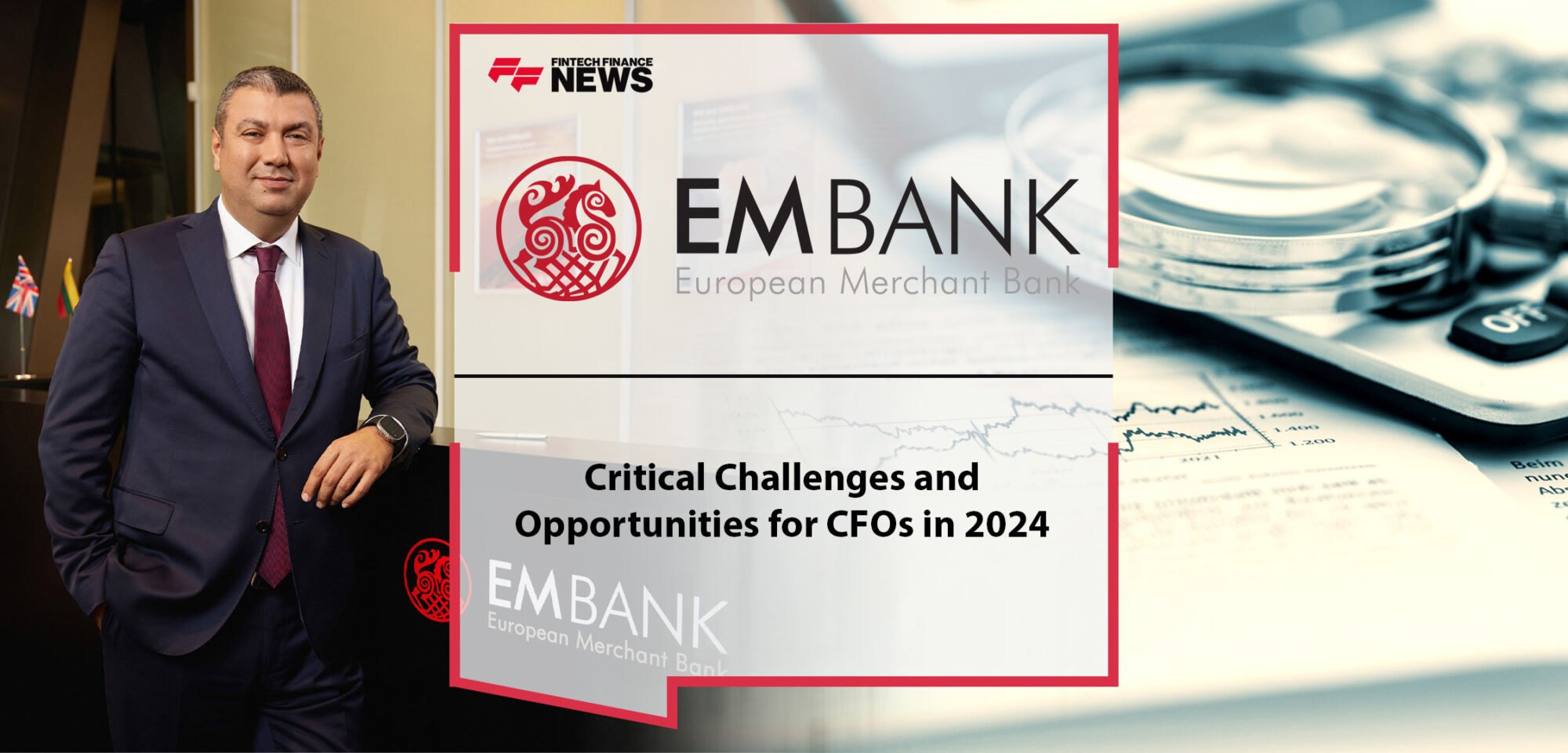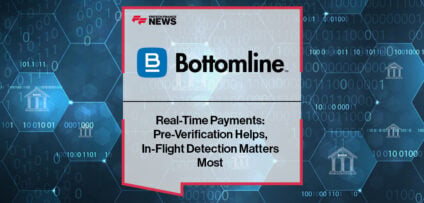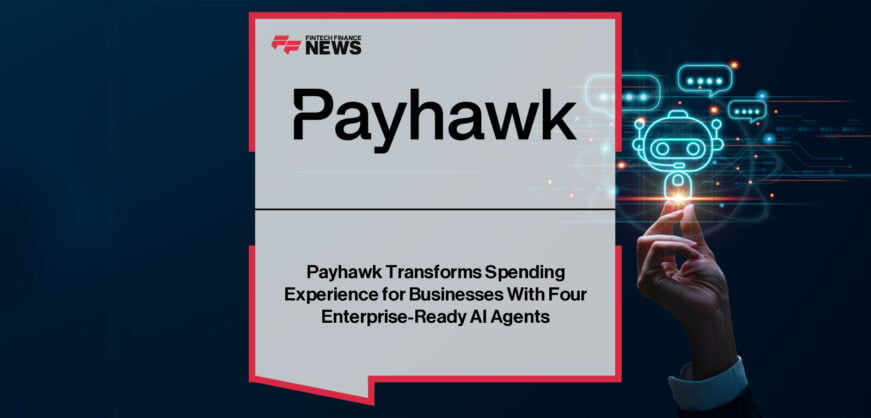Breaking News

Critical Challenges and Opportunities for CFOs in 2024 | Güven Aytaş, EMBank
By Güven Aytaş, Head of Global Sales at EMBank
Time swiftly passes, and the methods of conducting business evolve at an accelerating rate. This evolution is reshaping numerous industries, occupations, and business practices. Accounting, finance, and treasury are job functions and departments often considered stationary. But in 2024, life in these departments promises to be anything but boring. Financial departments exist to ensure monetary efficiency, manage cash flow, and control risk. While the compass still points the same North, the road to success dots a new path. Increased geopolitical risks, rising interest rates, and uncertainties across businesses and economies mark the map. Still, with new challenges come new opportunities.
Let’s start by addressing what has changed in the past few years that affected how businesses should manage their finances. First, the pandemic brought back the focus on profitability and working capital efficiency. While revenue growth is still paramount in company valuations, the appetite for funding and loans is more prominently shaped around profitability. With the current global state, we don’t expect this to change anytime soon.
“While geopolitical changes and market conditions are solid propellants for change, the real driving force is technology.”
Rising interest rates brought effective cash management and effective cash forecasts back into CFO agendas. With such low rates in the past two decades, these calculations were not that much significant for many businesses. As experienced bankers, we are no strangers to cash forecasting and testing scenarios for different market conditions—supply chain disruptions, FX fluctuations, payment losses, etc. These are routine practices for bankers, and I am happy to observe that our experience and tools help businesses and CFOs direct sharper focus here.
While geopolitical changes and market conditions are solid propellants for change, the real driving force is technology. We did not get here in a day. Consider how financial technologies evolved over the past two decades, from the first steps in digital banking to mobile banking and most recently, to embedded finance. Today, we are at an inflexion point, and organisations and individuals must adapt and make the most of the opportunities digitalisation brings—or be left behind.
Within a business, financial functions are often not the first departments that come to mind when talking about digital transformation. However, they indeed play a critical role in organisations’ digitalisation in multiple ways. Let’s first consider inter-company functions. With today’s landscape of as-a-service business partners, integrability is the key to efficiency. Through APIs, a finance department can integrate risk management, KYC & AML checks and efficiently manage their receivables and payables. Long gone are the days when CFOs or their teamsters called their bank to place a transfer order or check their payments’ status.
It pays off to be well-connected to banks, financial institutions and service providers. There’s great technology out there where processes such as payments are automated or a single click away; they run seamlessly across multiple systems in a fast and secure manner.
But the need for adaptation does not stop there. Digitalisation also has an internal component, building on the organisation’s culture and practice. Once again, the availability of solid financial management tools, often cloud-based, makes this an attainable and affordable investment. Nonetheless, tools are never enough to change the business independently; it’s always about how teams work. An organisation accustomed to working around KPIs, aligned on shared – or intersecting goals, focusing on cash and profit is the utopia.
With the right mindset, tools and techniques, digitalised working methods enable real-time data flow across the organisation. Artificial intelligence and machine learning are already at play, and they will likely be at the forefront of this progress in the near future. The availability of real-time data and AI tools allows real-time analysis, better and more rapid assessment of cash requirements, liquidity risks, cost management, supply chain management, and ultimately, better decision-making regarding the organisation’s financial management.
“The roles of CFOs have moved beyond traditional finance and accounting; the skills that companies require from them have also changed.”
But making this a reality also requires changing the organisation’s skillset. In the brave new digital world, CFOs must also look closer to home. Today, CFOs need to work closely with IT, make decisions on software purchases, talk to vendors and partners on system integrations, and hire and manage a new, more digital brand of teamsters. When hiring, CFOs need to look beyond traditional backgrounds in accounting and finance and rethink what they value when assessing and employing candidates. They need to be able to orchestrate the digitalising work and the digital-savvy people they have to work with.
CFOs were known as a position that stood out in the past for dealing with numbers. Today, they have increasingly come to the fore as a position that takes on more operational responsibilities. In recent years, the roles of CFOs have moved beyond traditional finance and accounting; the skills that companies require from them have also changed. Unsurprisingly, the CFOs that live up to the challenge are often later in the CEO role, within their organizations or elsewhere.
The question is not whether or how change can be avoided but how to embrace it and make the most of the opportunities that lie ahead.
How Can EMBank Help?
At EMBank, we provide banking for growth. Banking for growth means having the business insight, products and technology to empower our clients. This translates to a total package of a European banking license, accounts in line with regulations, a single API-based software, and the know-how to provide embedded finance. We offer accessible lending options, as well as payment and account solutions for local and international businesses.
We pride ourselves on high professional standards, transparent practices, resilience to find solutions and long-term commitment to all our partners. At EMBank, we combine our passion for entrepreneurship with our experience in banking. We are entrepreneurs at heart and experienced bankers in mind. We work closely with our clients to help secure their rapid growth and long-term success.
People In This Post
Companies In This Post
- Payhawk Transforms Spending Experience for Businesses With Four Enterprise-Ready AI Agents Read more
- Alipay+ to Launch in Saudi Arabia, Facilitating Cross-Border Mobile Payments for Local Merchants Read more
- Saudi Central Bank Launches Google Pay Service Through Mada Network Read more
- Tamara Secures New Asset-Backed Facility of Up to $2.4 Billion Read more
- Starling Reveals New-Look Logo, App and Cards as Bank Launches Brand Mission to Help Britons Become ‘Good With Money’ Read more



















